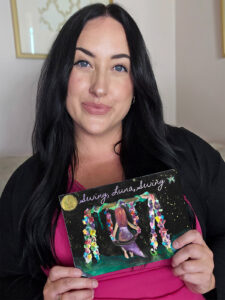Life skills in the classroom
CFR teaches school children about drug abuse prevention
-
-Messenger photo by Peter Kaspari
Radney Roosa, a teacher at Fort Dodge Middle School, goes over a checklist during a recent Life Skills class. Life Skills programming was brought to Fort Dodge schools by Community and Family Resources.
-
-Messenger photo by Peter Kaspari
Radney Roosa, who teaches Life Skills programming at Fort Dodge Middle School, asks his class to fill out a list of positive behaviors during a recent class session.

-Messenger photo by Peter Kaspari
Radney Roosa, a teacher at Fort Dodge Middle School, goes over a checklist during a recent Life Skills class. Life Skills programming was brought to Fort Dodge schools by Community and Family Resources.
As children make their way through school, there’s a strong chance that a local treatment center has educated them about the dangers of drug abuse, including opioid abuse.
Community and Family Resources, with the help of a grant, visits area schools and offers a variety of programs for the students to educate them about drug abuse.
Corey Keller, a prevention specialist with CFR, is one of the people who visits the classrooms.
The Comprehensive Substance Abuse Prevention Grant, which is provided through the Iowa Department of Public Health, allows for the programs to happen.
“One of the big things we do is we implement evidence-based curriculum in schools,” she said. “And we can do a couple different curriculums.”

-Messenger photo by Peter Kaspari
Radney Roosa, who teaches Life Skills programming at Fort Dodge Middle School, asks his class to fill out a list of positive behaviors during a recent class session.
There are two programs that have proven successful for CFR: Too Good for Drugs and the Life Skills program.
Too Good for Drugs are 10 one-hour sessions, and Keller said CFR is able to implement that in schools with students in kindergarten through high school.
“We are doing that at St. Paul (Lutheran School) with the fourth-graders, St. Edmond (Catholic School) with the fifth- and sixth-graders, Southeast Valley with the fifth-graders and Feelhaver with the fourth-graders,” Keller said. “Basically, it’s not only drug prevention, but it’s also goal-setting, decision-making, building strong friendships, peer pressure refusal.”
Life Skills is a program that is presented to seventh-graders at Fort Dodge Middle School, and is held in conjunction with the students’ health classes.
“It’s a 15-session curriculum that is not only drug prevention, but also violence prevention, goal-setting, decision-making, assertiveness,” she said. “It’s kind of those behavior strategies, too.”
Keller said students seem to enjoy participating in both programs.
And she said evidence shows that the programs are working.
In Too Good for Drugs, a survey is done at the beginning of the sessions and at the end of the sessions regarding perception of drugs, tobacco and alcohol.
“We see a significant increase in their perceptions of the dangers,” Keller said.
The survey also asks about discussions between parents and their children. One of the questions asked is, in the past 12 months, have the children had a conversation about substance abuse with their parents.
At the end of Too Good for Drugs, Keller said the number of students who have had conversations with their parents goes up, usually significantly.
For Life Skills, Keller said last year, the class had a section dedicated to opioid abuse and prescription drug abuse.
She added that the class will also use real-life news stories in the class, which she said helps drive the point home about what’s going on with drug abuse.
“The kids have responded really well to that,” she said.
Rita Anderson, a fifth-grade teacher at St. Edmond, said Too Good for Drugs has been beneficial to her students.
“From this program, students learned goal-setting, including how to set realistic goals, which can help them in all areas of their lives, not just academic,” Anderson said. “The majority of the lessons focused on making positive/healthy choices in their lives.”
She added that the program gave students ways of saying “no” to peer pressure, and used interactive games.
“Students had weekly homework assignments that were meant to be shared and discussed with their parents, and parents had to sign off on,” Anderson said. “They also received a workbook, in which they could journal and reflect on different lessons while they were presented in class.”
Fort Dodge Middle School Principal Ryan Flaherty said Life Skills is also a very important program for middle-schoolers in particular.
“We know that the middle school years are super important for the development of kids in which they’ll be making lots of decisions, facing lots of pressures to do certain things,” Flaherty said. “And we believe our greatest tool to help students make the right decision is education. Instead of reacting when things go wrong, we want to promote healthy lifestyles, educate students and give them the skills to make healthy decisions when they’re faced with those as they grow up.”
He added that the students have benefited from the program.
“I think our students want the information and I think they want the ability to do the right thing,” he said. “Proper education gives them the ability to do that.”
CFR provides all the materials itself, according to Keller. The school district doesn’t have to pay anything.
“We’re not training the teachers to do it,” she said. “We’re actually doing it and teaching the curriculum.”
All the teachers do is schedule the time for CFR to come in and decide which grades they want to be educated about drug and substance abuse.
“A lot of times it’s fourth and sixth grade,” Keller said. “In Webster (County), that’s where we’re currently implementing it.”
She added that CFR is always interested in coming to speak at schools if teachers are interested.
“If there is a specific topic that any teacher, administrator wants to hear more about, whether it’s e-cigarettes or marijuana concentrates or mixing alcohol and energy drinks,” she said, “we’re willing to come in and present.”






